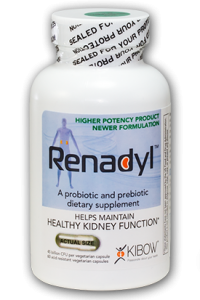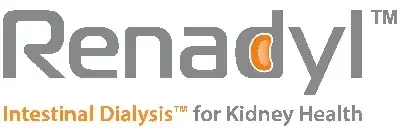Living a healthy lifestyle
Living a healthy lifestyle is an important part of managing Chronic Kidney Disease (CKD).
Changing for the better!
Chronic Kidney Disease (CKD) doesn’t have to stop your loved one from living the life they’ve always dreamed of. By making a few smart changes to diet, making sure to stay active, and forming some overall healthy habits, patients with CKD can keep enjoying the things that inspire them. The types of changes that may be necessary can benefit everyone, regardless of whether they have Chronic Kidney Disease (CKD). It can be helpful to have a friend or family member commit to living the same healthy lifestyle, to give them both better health and encourage the person with CKD along the way!
Trading bad habits for good ones
Because CKD increases the risk of other serious complications such as heart disease and stroke, it’s important that CKD patients start making healthy choices as soon as possible.
The most significant changes include changes in diet and daily activity levels. When it comes to determining an appropriate diet and exercise regimen, it is recommended that patients speak with a dietician or health care professional. But, to get you started here are a few general suggestions.
Guide to a healthy diet
- Choose foods that are low in sodium—A diet low in sodium can
aid in managing blood pressure. Although the amount may vary from person to person, it is a good idea to try and limit your sodium intake to about 1,500 mg each day.
- Choose the right type and amount of protein—Eating small portions of foods high in protein will help protect the kidneys. Lean proteins such as chicken and fish are recommended.
- Choose heart-healthy foods—Avoid fried foods because they tend to contain a large amount of fat. Instead, bake, roast, stew, or broil food.
- Choose foods with low amounts of phosphorus—Normally functioning kidneys will remove extra phosphorus in the body. Damaged kidneys are unable to rid the body of excess phosphorus, causing levels to rise.
- Choose foods with the right amount of potassium—Eating too little or too much potassium can cause your muscles and nerves to work improperly. Talk to a dietician to find out what amount of potassium is recommended.
- Choose drinks that are low in potassium and phosphorus—Apple, grape, and cranberry juice are good choices when tying to limit potassium. Likewise, light-colored sodas may contain less phosphorus than dark-colored sodas.
- Limit your alcohol intake—Alcohol can damage the liver, heart, and brain. Some patients with CKD may be able to have very small amounts of alcohol, but they should consult a health care professional before doing so.
Exercises that help manage Chronic Kidney Disease (CKD)
- Exercise can help patients with CKD feel better, strengthen muscles, and have more energy.
- Exercises that keep the heart rate up such as walking, bicycling, swimming, and more can help work large muscle groups at once.
- Weight training with low weight and high repetitions can also keep your heart rate up. Avoid heavy lifting during your exercise routine. Before starting a weight training program, you should consult a professional to ensure you are healthy enough to do so.
- Working up toward the goal of a 30-minute workout is recommended. Remember, this is a change in lifestyle, not a quick fix, so don’t try to do too much too fast.
- Exercise 3 days a week and mix up your routine to keep your body guessing.
Eliminate these bad habits
- Alcohol consumption—Speak with a health care professional about whether you can drink alcohol.
- Smoking—Smoking can have a major affect on kidney disease.
- Eating fatty foods—Lowering your body weight can help lower cholesterol and blood pressure.
- Living a high-stress lifestyle—This can lead to hypertension.
A promising combination!
Implementing the lifestyle changes above, as well as supplementing with probiotics may help patients with CKD live a better quality of life and support proper kidney function.
Renadyl™ | Natural supplement for Kidney Health
Renadyl™ is a patented and proprietary probiotics dietary supplement that has been scientifically formulated and clinically tested. Renadyl™ metabolizes nitrogenous waste that has diffused from the bloodstream into the bowel. Nitrogenous wastes are utilized by Renadyl™ as nutrients. As probiotics grow and multiply, they consume more nitrogenous waste and therefore effectively help maintain healthy kidney function. The nitrogenous metabolites are eliminated as solid waste/fecal matter. Renadyl as Kidney supplement for Chronic Kidney Problems / Disease – CKD
Note: The statements on this website and the products offered have not been evaluated by the US Food and Drug Administration. These products are not intended to diagnose, treat, cure or prevent any disease. Contents herein are being provided solely for the purpose of information. If you are pregnant, do not take any of our products listed herein. Also, please consult your physician or a qualified medical professional prior to taking this or any other dietary supplements or if you feel you have uremic, metabolic or related health conditions.







